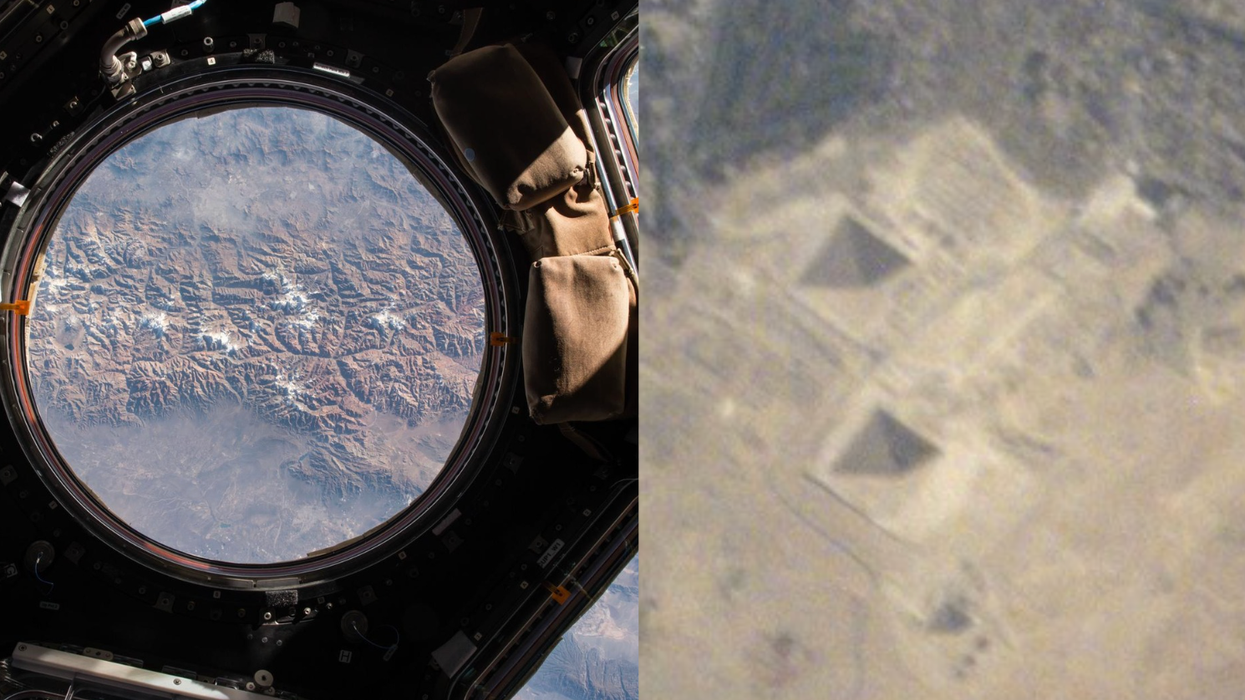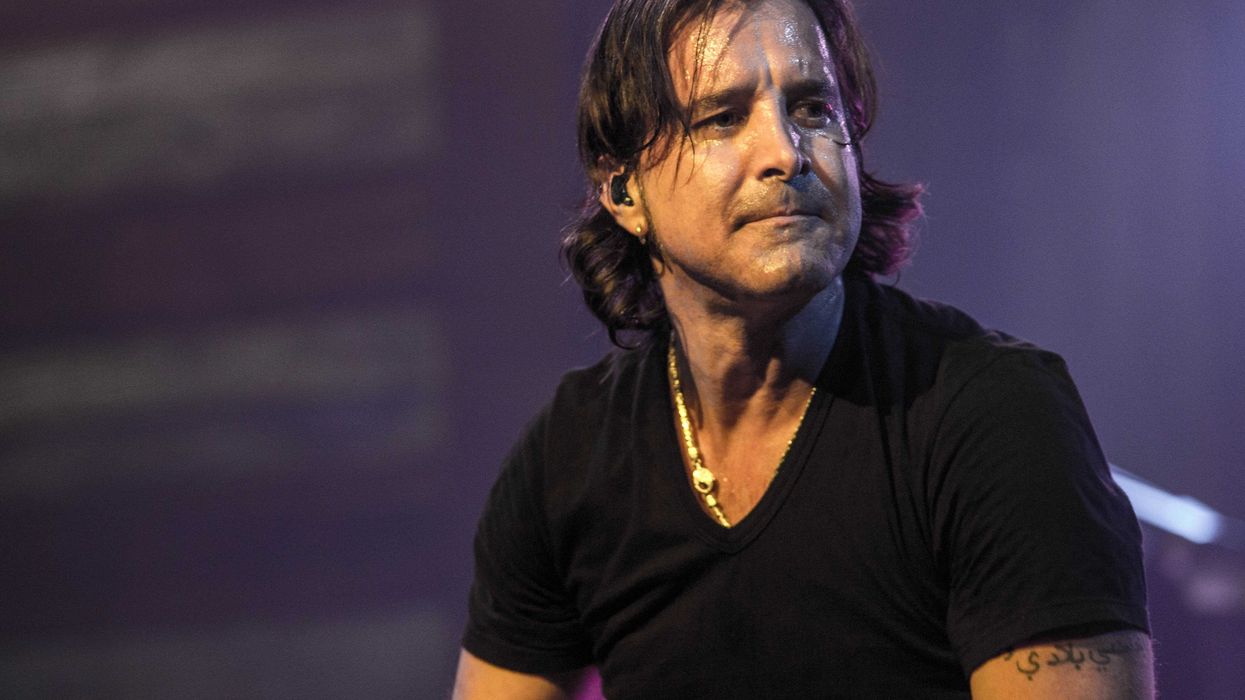Rachel Boynton never meant to make a film in Ghana. When the documentary filmmaker started making trips to Africa, her flights landed in Lagos. After her 2005 film Our Brand Is Crisis, which follows an American politial consulting firm's work in Bolivia during the country's 2002 presidential election, she wanted to investigate why underserved Nigerian citizens were attacking federally maintained pipelines. But when an upstart Texas oil company, Kosmos Energy, discovered the first major oil field off the coast of Ghana, and invited Boynton along to film their negotiations with the country's government, it set in motion the story that forms the backbone of Big Men–a scathing and unfettered look at the cross-cultural clash and universal greed that infects the world's most coveted resource.
The film is a triumph of access that goes behind the closed doors of an SEC investigation, deep into the swamps with Niger Delta militants, and on the campaign trail during Ghana's 2008 presidential election. On the front lines of a billion dollar industry, Boynton captures the complex human stories at each level of the chain, from impoverished natives to the private equity firms bankrolling it all.
After making its national broadcast debut Monday night on PBS, Big Men is streaming for free on the network's website through September 24. GOOD spoke with Boynton about what it means to be a "Big Man," the role of a documentarian, and what lies ahead for Ghana's future as it tries to resist the resource curse.
How did you first become interested in the West African oil business?
Back in 2006, the price of oil was in the news literally every 30 seconds. You turned on the radio, you turned on CNN, it was everywhere. Everyone was panicking about peak oil and the prices were going through the roof and I thought to myself, I'm seeing a lot about this subject matter, but I'm not seeing anything from inside the business of it. And I'm always really interested at looking at perspectives that I'm not seeing. Plus, I'm pretty good at getting access to things. So I thought to myself, well, I can make a film from inside the oil business. That's where it really started.
[quote position="full" is_quote="true"]The militants are connected to the government and the government is connected to the companies. Everyone is connected to everybody else.[/quote]
How aware were you of the inequality in Nigeria at the time?
I think anyone who reads anything about Nigeria is pretty aware of the inequality. It's hard not to be aware of it. And at the time there was an enormous amount of emphasis, particularly from the Bush administration, being put on the search for new sources of oil from off the coast of West Africa. It was considered this new frontier for oil companies because it was considered underexplored, particularly the undersea areas. So I thought that could be an interesting place to look.
In late 2005, early 2006, groups of militants were attacking pipelines and causing worldwide oil prices to skyrocket. They were kidnapping oil workers and demanding more benefits. So that sort of answers your question, which is to say that the entire thing was framed in that inequality... Originally, I thought I was going to make the whole film in Nigeria. I started by buying a plane ticket to Lagos. And I didn't know anyone in the oil business. I didn't know anyone on the continent of Africa, but I went anyway. I had a few phone numbers in my pocket from people who knew people, like my husband's business partner, whose brother had gone to boarding school with a Nigerian guy. So I had his number. You know, really random phone numbers that had nothing to do with the oil business.
But that's where I began. I started with this idea that you can get to anybody if you figure out how everyone's connected. And with this story, everyone really is connected. I mean, the militants are connected to the government and the government is connected to the companies. Everyone is connected to everybody else.
What were those early months in Nigeria like?
Well, on the first trip, it was really mostly about getting over my fear of Lagos. By the way, I really like Lagos -- it's kind of an amazing city. It's a complicated city, but I learned a lot there. I started by calling the four phone numbers that I had, meeting those people, and asking them if they knew anybody who might help me. And every time I spoke with somebody, I asked them if they had any ideas. And then I called those people [that they recommended] and I cast a really, really wide net. It took me a year and a half of traveling back and forth between the Niger Delta and Lagos and New York City, where I live. I think I spent more time in Nigeria that first year than I did in the U.S.
How did you first build the relationship with Kosmos?
I went to Lagos for the first time in August of 2006. And at the time, Kosmos existed and was buying up exploration rights offshore in different countries. But it was not yet active. It hadn't yet drilled its first well... People were really interested in what it was doing because the guy who started that company had the reputation for being someone who could find oil in places where other people hadn't. They had all worked together at a company called Triton Energy in the late 90s, and at Triton they had been the people who had first discovered oil off the coast of Equatorial Guinea. So, when people saw that the Kosmos guys were interested in something, others became interested.
I had reached out to Brian Maxted, who was the number two guy there, but he didn't respond to me. I tried a couple times and had no luck. And then I filmed a panel discussion about Nigeria in 2007 in Houston that Brian was on. After I filmed him on this panel, I told him who I was, and he started returning my emails. We went out to lunch in Houston several months later, and I sort of pitched him on what I wanted to do. He said, 'Why don't you come pitch to the guys who started the company?'
I went to Kosmos and did a really lame PowerPoint presentation. I gave them three options: Just let me shoot anything on an oil rig, because I was having a lot of trouble getting onto an oil rig. That was number one. Number two was, let me follow you in Nigeria, because I knew they were interested in that area. Now, by the time I actually pitched them as a group, they had just drilled their first well, and with that well they had discovered this massive new oil field off the coast of Ghana. So option number three was, 'Guys, you just made this huge discovery off the coast of Ghana and I think there's a good story here.' They ultimately went for option number three.
So when that happened, my whole conception for the film changed and it became much larger. It really became more of a film about human nature, than one about a particular place. And that's sort of what led me to the 'big man' thing.
Was greed a theme that interested you prior to making this film?
This concept of the 'big man' is just something you hear everyday, all the time, wherever you go [in Nigeria]. You go to the lobby of a hotel and you need help finding a restaurant, and someone says, 'Go talk to the big man' It's a very, very common phrase. And it's used in reference to somebody who's in charge. It's used to refer to somebody who has a good reputation. But it's always a guy on top. The guy in charge. The guy with the power. And everybody wants to big. And people talk about wanting to be big.
To me, that desire to be 'big' is something that very much drives society where I live. I live in New York. New York's all about people wanting to be big, and their ambition, their drive. But in Nigeria, they actually talk about it. They label it in a very clear way. To me, that was just documentary gold. To have this impulse that is such a driving force in their world, and in my world, spoken about in such clear language. It allows you to look at it in a way that's much more on the surface than it is here [in the U.S.]. Even though, of course, it's here in spades. So that's how I became interested in it.
Did you ever struggle to reserve judgment on characters? For example, when Kosmos gave the village $10,000 for schools, was that uncomfortable?
First of all, that's very normal. A lot of people see it as like, 'Oh my God, the bribery!' But people who haven't spent time in West Africa don't know that anytime you go to a village, you have to meet the chief. And, generally speaking, you're supposed to bring them a gift. That's what you do.
And the Ashanti king is the head honcho king of Ghana. He's an incredibly important political figure. So it's considered culturally expected that when you go and visit him, you bring him a gift. But, of course, I think that scene is indicative of a real cultural difference. The way things are done in various places is very different.
In terms of reserving judgment, I think part of the reason people let me film them is because I'm not really a judgmental person. If I approach somebody, and I say, 'I wanna film you,' it's because I'm sincerely interested in what they have to say. My theory about people is that they know their own stories from their own perspectives. And just because I don't necessarily share somebody's perspective doesn't mean I don't have something to learn from their perspective. It doesn't make their perspective invalid. It might make our opinions different, it might make our politics different, but it doesn't mean that they're wrong and not worth listening to, or inherently somehow evil. I just never approached anyone in the film that way, not the oil companies, not the governments, not the militants. I approached everyone with the idea that they had something to share and something to say. And I wanted to look into what that was.
As the story developed, were there times when it was hard to preserve access to characters?
Of course. Kosmos was under investigation. They had the FBI knocking on their door. There were serious problems going on. And they were simultaneously trying to sell their company for a few billion dollars. So yeah, in those moments, access becomes strained and oil companies are not exactly inclined to allow independent filmmakers to openly run around when things are that tense.
That said, the job of a documentary filmmaker, in this situation, is to be realistic and simultaneously pushy. You recognize that you're not going to get this scene with Exxon Mobile talking about deal terms. Exxon's not going to let me film that scene. That said, that doesn't mean that I can't get the head of Kosmos's board of directors to talk about Exxon. My attitude is always to just talk very openly with people about what their limits are and what they can do and what they can't do. And to try to be respectful of those limits. Because, otherwise, you won't get any access.
If you stay with any story long enough, there are always going to be moments of tension. Whatever the story is. It just so happens that this film is about the most important resource on the planet. We're talking about billions and billions of dollars and governments and massive companies. Isn't Exxon the largest company in the world? So they're pretty hefty players. In that context, the fact that the film exists, to me, is extraordinary. I think it's kind of amazing to be behind the scenes during the FCPA investigation. It's kind of crazy to be walking around the offices with a camera.
[quote position="full" is_quote="true"]I approached everyone with the idea that they had something to share and something to say.[/quote]
What do you see in Ghana's future? Do you have hope for their ability to capitalize on their resources effectively and fairly?
I think Ghana's making a real effort. I'm pretty impressed with the level of transparency so far there, both with the companies and from the government. You know, it's a work in progress. I always knew when I started the film, the questions of: Who is going to benefit? Was this going to be done equitably? None of that was going to be answered in the foreseeable future. I really do think it's going to take like another ten years before you come down one way or the other on how the resources are being exploited. It takes time for these things to function and for people to get their act together. That's normal. But you know, I certainly see there are a lot of people there who really do want to do the right thing. It's very difficult to do the right thing. And I think the only guarantee ultimately is going to be public accountability, which means encouraging transparency and encouraging the public, NGOs, and the press to really get their facts straight. And try to keep track of what's happening and to talk about it openly so that there's some accountability.
You've accomplished two massive undertakings now. What does it look like when you're in between stories? Do you know what you're working on next?
I had two children while I was making this film. So the landscape of my life is very different than it was when I started the film. I actually think I'm going to make a film about my husband. I'm kind of excited about it. My husband's a fiction filmmaker and he's about to go make this crazy movie in South Africa. I just think it could be really fun to make a film about the making of his film. And my access would be great. I wouldn't have to fight for it. So I think I'm going to do that, just as a palette cleanser. I think it could be a really fun movie and I'm ready for a little bit of fun.
















 Otis knew before they did.
Otis knew before they did.